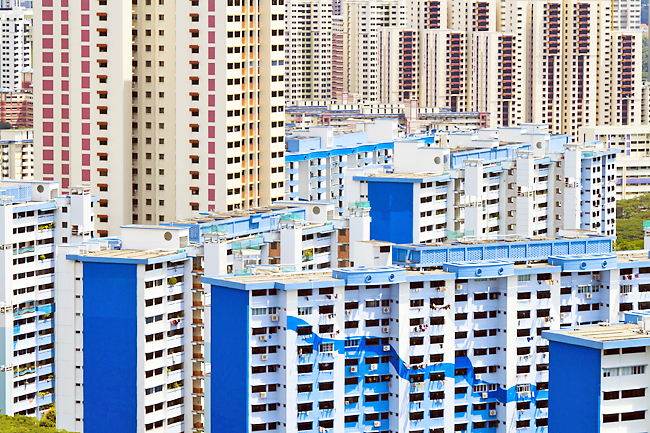CNA – Shares of Singapore property developers pared some losses on Friday after taking a hit in the morning, following the late-night announcement of cooling measures.
The measures include raising the medium-term interest rate floor by 0.5 percentage points to four per cent. The so-called “stress test” rate is used by banks to compute a borrower’s loan eligibility amount to fulfil the total debt servicing ratio (TDSR) limit of 55 per cent.
TDSR refers to the portion of a borrower’s gross monthly income that goes towards repaying their monthly debt obligations.
The new medium-term interest rate floor means authorities are tightening the criteria to assess a borrower’s ability to repay the loan.
Shares of City Developments Limited (CDL) ended down 0.1 per cent after falling by as much as 2.5 per cent on Friday morning.

As of the midday trading break, Wing Tai Holdings slid 3.3 per cent but ended the trading day 0.7 per cent lower.
Frasers Property fell one per cent, while OUE lost 2.3 per cent. Real estate agency PropNex extended earlier losses, falling 2.6 per cent.
Meanwhile, shares of local banks, which have been revising their home loan packages amid rising interest rates, ended higher. DBS and OCBC edged up 1.4 per cent and one per cent respectively, while UOB closed 0.1 per cent higher.
In announcing the cooling measures, Singapore authorities noted that market interest rates have risen significantly and are likely to rise further, which will affect borrowing costs for home purchases.
“We urge households to exercise prudence before taking up any new loans and be sure of their debt-servicing ability before making long-term financial commitments,” said the Monetary Authority of Singapore, the Ministry of National Development and the Housing and Development Board (HDB) in a joint media release.
Property analysts said the calibration of the medium-term stress test interest rate was widely expected.
“Mortgage rates have already exceeded three per cent in recent months and are likely to exceed the pre-measure stress test rate of 3.5 per cent going into 2023, vanquishing any meaningful buffer to safeguard borrowers’ ability to service property loans in a rising rate environment,” said at Edmund Tie’s head of research and consulting Lam Chern Woon “For the private property market where SGD2 million home price quantums are increasingly common, even in the suburban segment, affordability will undoubtedly be impacted.”
Huttons Asia’s senior director of research Lee Sze Teck said there may be some impact on demand as some buyers may hold back for the moment. “Developers may defer some launches to next year,” he said.
“Transaction volume may be slower in the next three months. We will probably see new sales transaction volume (at) around 8,000 units, lower than our initial forecast of up to 9,000 units in 2022.”
In the public housing market, the government also lowered the loan-to-value (LTV) limit for HDB loans from 85 per cent to 80 per cent, reducing the maximum amount home buyers can borrow from HDB.
To moderate demand in the HDB resale market, the government has imposed a 15-month wait-out period for private home owners before they can purchase a non-subsidised HDB resale flat. This will kick in after they have sold their property.
Previously, such property owners were allowed to buy an HDB resale flat on the open market if they sold their private properties within six months of purchasing the unit.







